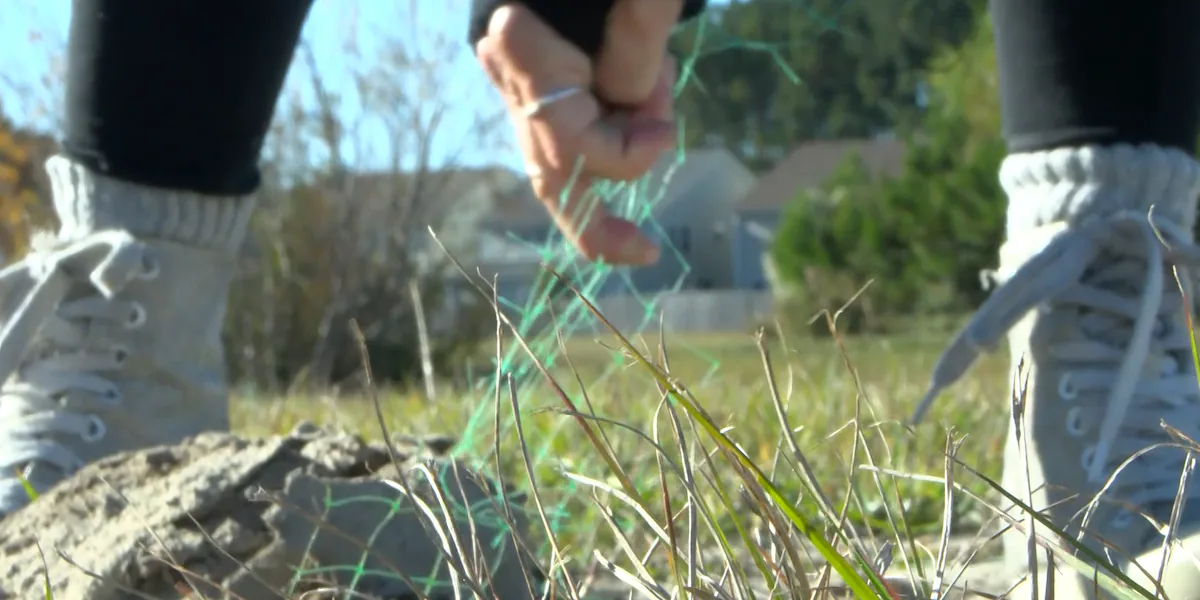Copyright Live 5 News WCSC

BERKELEY COUNTY, S.C. (WCSC) - Landscape netting used in new housing developments across the Lowcountry is harming dozens of animals, according to Wildlife rescuers, prompting calls for developers to switch to eco-friendly alternatives. Donna Dorner, a volunteer with Carolina Waterfowl Rescue, said she regularly finds animals entangled in the plastic-like netting that developers have installed throughout her neighborhood for erosion control. “You’re seeing a lot of dead wildlife due to this. A lot of dead fish, your turtles. We’re finding geese, ducks, especially [during] baby season because they get caught in this, they can’t get out of this,” Dorner said. Dorner and other volunteers are demanding developers use biodegradable erosion control materials instead of the current webbing. She said the netting is sharp enough to cut her hands when she tries to remove it. “When I try to pull this up in areas where it is coming up, I will slice my hands on it,” Dorner said. South Carolina does not have regulations requiring biodegradable netting, allowing developers to use materials that can introduce harmful products into soil and be ingested by wild animals. Rescuers said they have contacted developers, homeowners’ associations and the Department of Natural Resources about their concerns but received no responses. Chris Jordan, another Carolina Waterfowl Rescue volunteer, said developers may not realize the severity of the situation. “I don’t think they’re very aware of it as much as the people that see it. There’s got to be more accountability and getting the word out there that this is a problem,” Jordan said. Dorner said numerous neighbors across the Lowcountry have contacted rescuers for help with animals trapped in webbing near their homes. She said water areas that once hosted state-protected animals like blue herons, geese and ducks now have less wildlife. “They’re rushing through quickly when the houses come up. It is insane, so they build just house after house after house and I don’t think they’re taking the time to protect any of the environment nor any green space left,” Dorner said. Berkeley County ranks in the top 1% nationally for fastest-growing areas, with new developments continuing to expand across the region. Homeowners’ associations and the Department of Natural Resources did not respond to requests for comment.



